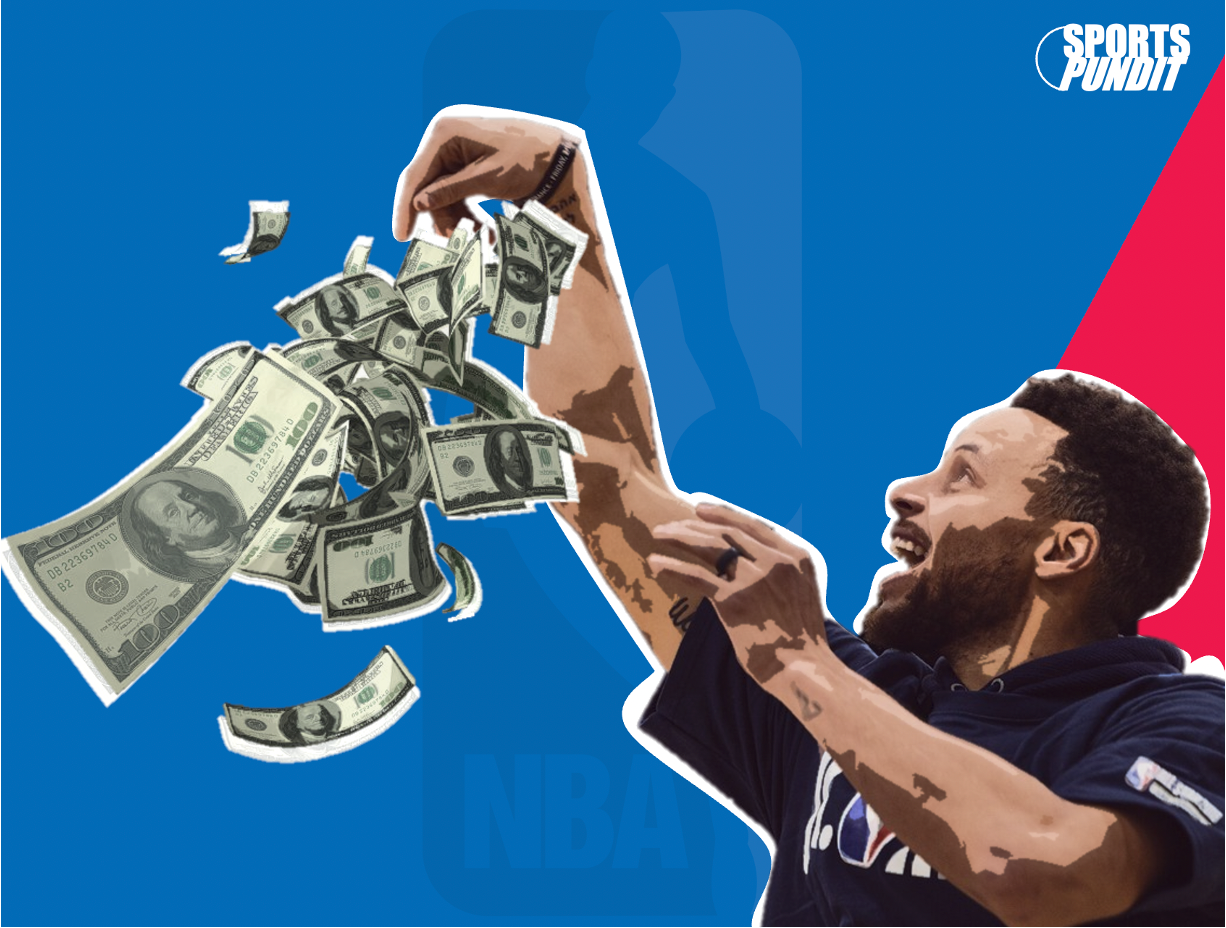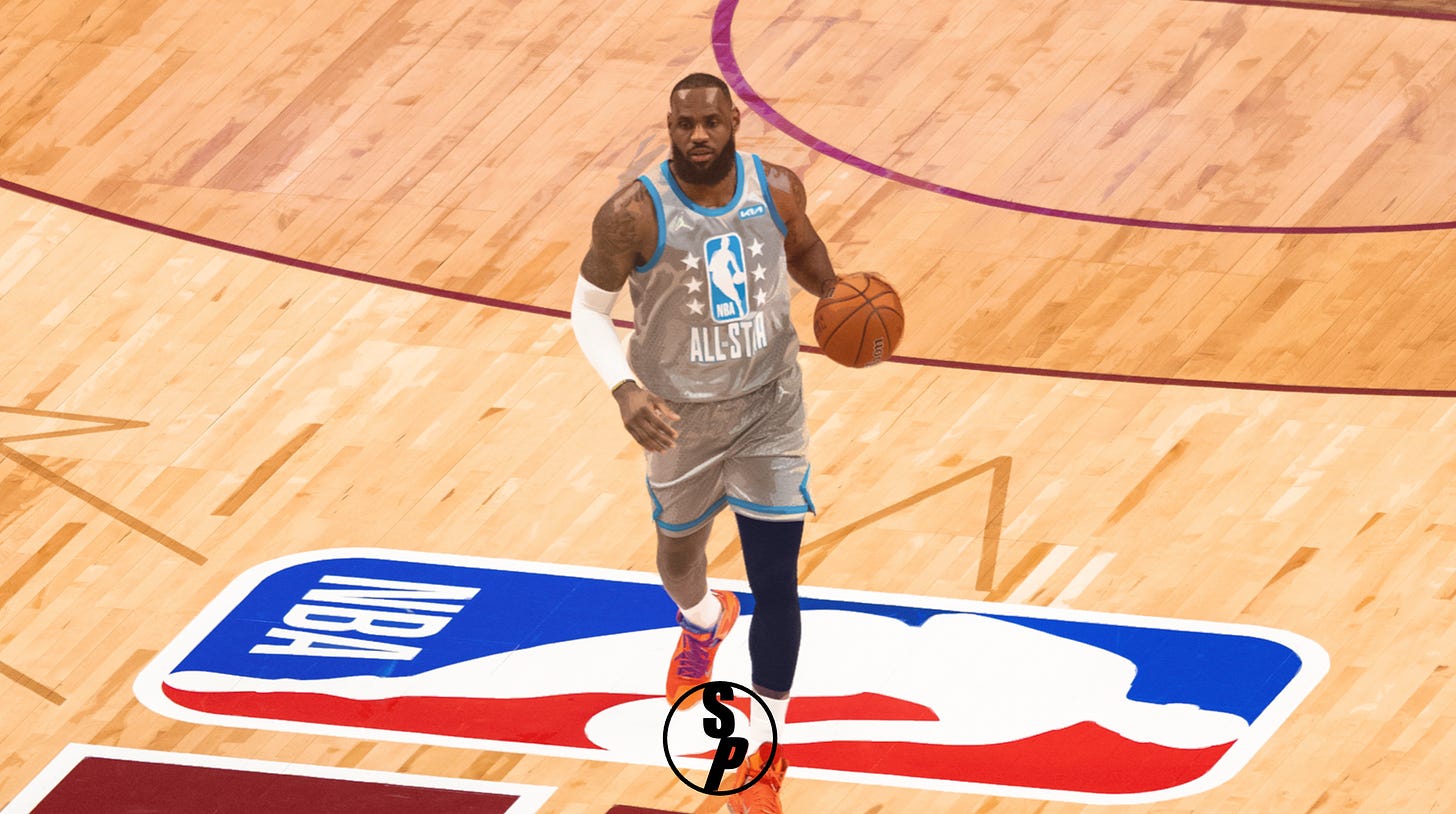Sweaty equity: Why sports leagues are setting up investment funds 💸
The NBA is the latest in a series of leagues setting up their own private equity divisions to capitalise on the suppliers serving them.
Not yet a subscriber? Join 1000+ sports business leaders from Fnatic to Formula 1 that read Sports Pundit every week to get impactful industry insights.
The interest of private equity firms towards professional sports is well known by now.
In 2021, they spent an incredible $51 billion on sports investment globally, according to PitchBook. There are even funds, such as Arctos Sports Partners and RedBird Capital Partners (who recently acquired AC Milan), that are solely focused on sports.
Now, it appears that this interest is starting to be reciprocated by the sports leagues, who all want a piece of the PE pie.
JohnWallStreet first put this on my radar when he reported that the PGA of America had embarked on a joint venture with Elysian Park Ventures called EP Golf Ventures.
“The joint venture – designed to spur innovation in and around the $90 billion golf industry, as well as add strategic value—intends to invest in startups across coaching and training; health, wellness and performance science; hospitality; facility management; retail; and agriculture.”
And the trend appears to be really catching on…
Last week the NBA created a new private equity division, seeking to expand its role as a strategic investor in sport start-ups that drive innovation on and off the court. Though the NBA have previously acquired stakes in companies, this move intimates a more proactive approach towards identifying investment opportunities.
In doing so, they join the aforementioned PGA of America, as well as the NFL (32 Equity) and MLB (Baseball Endowment Fund) in having a dedicated investment platform.
The question is, Why are these leagues suddenly interested in investing?
Well, as Cole Van Nice, co-founder and managing partner at Elysian Park Ventures, explained to JohnWallStreet,
“That combination of domain expertise, plus capital capacity, plus investment and company building expertise” can result in outsized innovation and economic returns.
Outsized Innovation
There is an obvious advantage to rightsholders that are open to, and aware of, innovations happening in their domain. Having earlier access to deploy a technology that enhances fan experience or player performance is going to be highly beneficial for a league – and provide a potential edge over competitors.
Furthermore, being proactively involved in a technology’s development can be mutually beneficial to both parties. Sharing data points and feedback could remove numerous iterations of the product (vs the company being left to figure it out alone). It can also lead to a more tailored product that better fits the specific needs of league.
While the fitness tracker WHOOP wasn’t built alongside a league per se, I found this insight from their CEO Will Ahmed on a recent podcast to be really powerful nonetheless (1:19:10).
“[Nike] was the company I was the most nervous about because I was afraid if they could build a wearable that their world's best athletes actually wore, they could then tell that story to the masses and be successful,” explains Ahmed.
“But they took a huge shortcut, and that shortcut was they just built a product they thought the mass market would like and so it wasn't a product that LeBron James was going to wear or Serena Williams or Tiger Woods.
They had all the best athletes in the world and so the clue to me that that product was going to fail was that it didn't stick to their identity. They didn't have the story at the top. They didn't have any of their top athletes wearing it.
On the flip side the opportunity I saw was if we could get the world's best athletes to wear WHOOP, we could in turn build our own brand around performance and around an aspirational product.”
You can imagine the benefit for other startups following a similar philosophy that have league investment. That sort of access could really accelerate product development and market fit.
Economic Returns
Selling into leagues and teams isn’t easy. However, it is crucial for success for many sports startups.
When you sell into a league as a supplier, there are significant benefits. In my mind, the advantages are three-fold, firstly receiving a paycheck for your product or service, secondly leveraging team or league IP (giving you further credibility when selling into others) and lastly distribution (if sold into a league and used across its teams).
Given leagues already offer these advantages to many suppliers with whom they receive no upside, it makes total sense for them to now own a piece of the success in which they are contributing to* – leading to Van Nice’s said economic returns.
* I would warn this mustn’t come at the detriment of the league, i.e. selecting an average supplier because you own a share versus a superior one that was developed externally. As the earlier WHOOP example demonstrates, cream rises to the top.
There are so many synergies for rights holders and innovative sports startups. As such, we can expect more and more to jump on board this trend as they seek to gain both an innovative edge and an economic share in the upside.
Specifically, I can see a lot of potential for this model to be implemented within sports that have expensive or specialist equipment and a high proportion of participation among their fanbases (triathlon, cycling etc.).
Which league do you think will be next? Let me know what you think in the comments 👇
Not yet a subscriber? Join 1000+ sports business leaders from Fnatic to Formula 1 that read Sports Pundit every week to get impactful industry insights.







